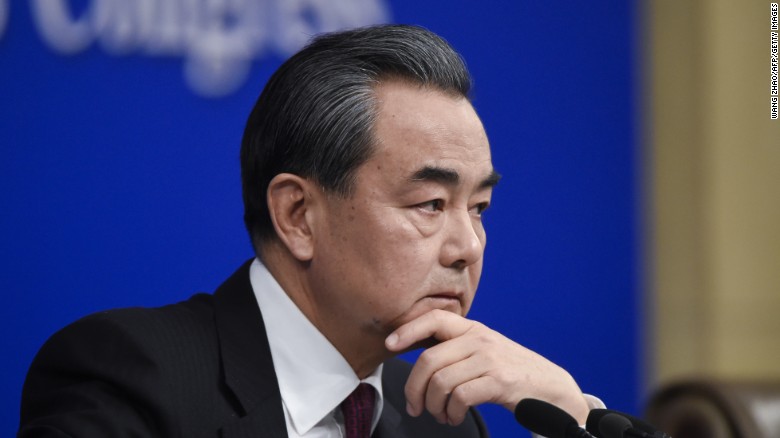
The United States and North Korea are set for a "head-on collision" with neither side willing to give way, China's top diplomat has warned.
In a week of heightened tensions in the region, Foreign Minister Wang Yi cautioned the US in unusually frank language against the deployment of a controversial missile defense system in South Korea. The system is vehemently opposed by China.
But he also had strong words for North Korea, saying Pyonyang should suspend its nuclear weapons program.
"The two sides are like two accelerating trains coming towards each other," Wang told reporters in Beijing. "The question is, are the two sides really ready for a head-on collision?"
China's stern warning came in the week that North Korea launched four ballistic missiles and the US deployed the first components of the Terminal High Altitude Area Defense missile system (THAAD) in South Korea.
A report in China's state news agency Xinhua said the deployment of THAAD could kick off an "arms race" in the region. "More missile shields of one side inevitably bring more nuclear missiles of the opposing side that can break through the missile shield," the article said, suggesting China could accelerate its nuclear program.
Wang called on the US and South Korea to ease tensions in the region by suspending annual joint military exercises that antagonize North Korea, in exchange for Pyongyang halting its nuclear program.
"Nuclear weapons will not bring security," Wang said. "The use of force is no solution. Talks deserve another chance and peace is still within our grasp."
He suggested China's role was to act as an early warning signal to avoid a potentially catastrophic collision on the Korea peninsula.
"(China's) priority now is to flash the red light and to apply brakes on both trains," he said.
China anxious over THAAD
Wang's press conference came a day after the US military revealed the controversial missile defense system had arrived in South Korea.
Pictures released by the United States showed the first pieces of the ballistic missile defense technology being unloaded at Osan Air Base in South Korea Monday night.
The missile defense system is intended to counter North Korean aggression, according to the US military, but China is strongly opposing its deployment.
Beijing believes the missile system could be used to spy on their activities, rather than monitoring incoming North Korean missiles, Mark Tokola of the Korean Economic Institute of America said.
On Wednesday, Wang said South Korea must "cease and desist" the deployment, which he described as undermining Chinese security.
Already China has expressed its displeasure through placing bans on South Korean artists and celebrities, while there have been reports of unofficial sanctions against the country's businesses.

No comments:
Post a Comment